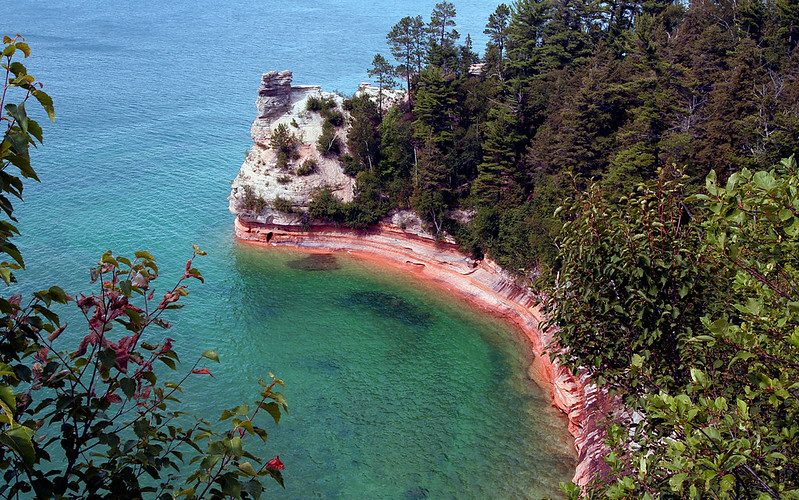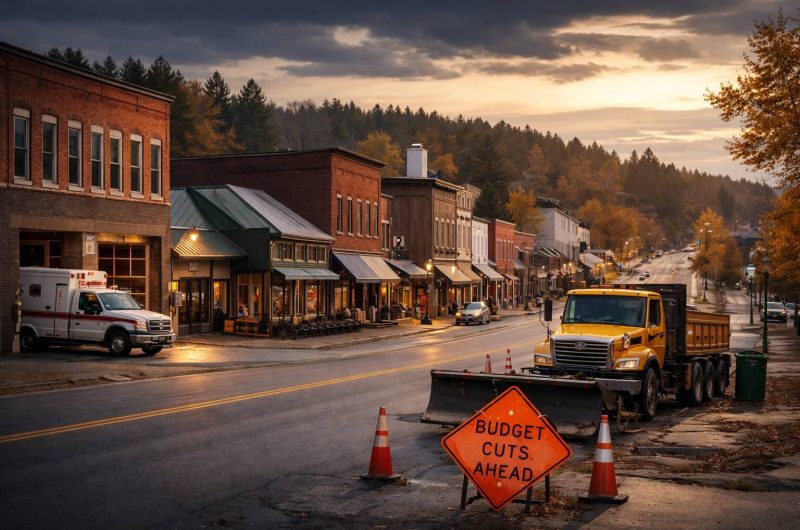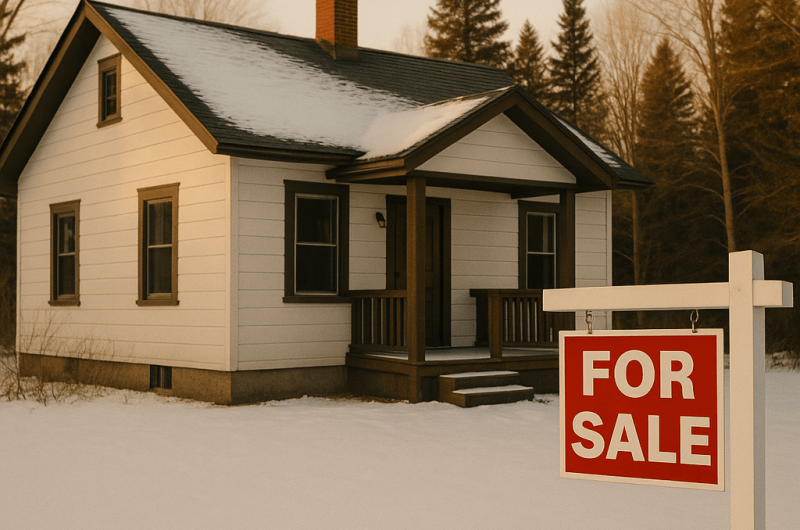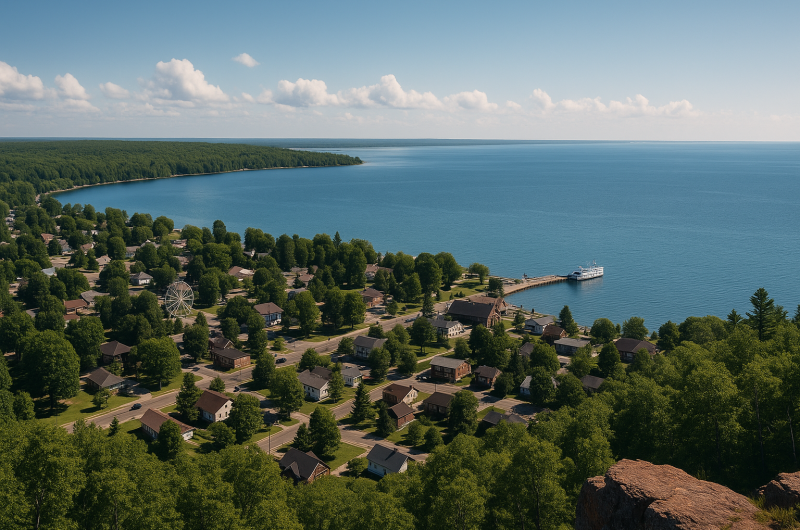Taxing Tourists: A Global and Local Perspective

Tourism is an important component of the U.P.’s economy. Tourists help support businesses, which provide employment and a source of tax revenue. In 2022, over 25% of total employment in Alger, Keweenaw, Luce, Mackinac and Ontonagon counties was related to tourism. Total tourist spending in the U.P. amounted to $1.5 billion and contributed $155 million to state and local taxes, according to the Michigan Economic Development Corporation.
Tourists also bring congestion, increased pressure on local services, and negative environmental impacts as well as contribute to a shortage of affordable housing in resort areas. In the past, these costs might have been considered “part of the cost of doing business,” but more and more destinations worldwide are looking to tourists to help pay for some of these costs. Earlier this year, for example, New Zealand raised its International Visitor Conservation and Tourism Levy to $100 a person to ensure visitors contribute to the country’s conservation and sustainable tourism efforts.
Should the U.P. increase existing tourist taxes? This article considers this question by first outlining some of the negative impacts associated with tourism and how some communities address this issue. The second part examines how Michigan taxes tourists and the opposition to raising taxes.
Opposition to Tourism
Residents in popular destinations bear tourism’s brunt in the form of overcrowding, congestion, higher rents and pressure on public services. The city of Venice, in Italy, for example, attempted to reduce its number of weekend and holiday day trippers, when tourists often outnumber local residents, by introducing a small admission fee in 2024. Preliminary analyses indicate the measure was ineffective, since the fee amounted to about the price of a cup of coffee.
But it is the shortage of affordable housing that is at the center of most complaints against the tourist industry. Low paid service workers can often no longer afford to live in their home communities as they are priced out of long-term housing by landlords converting properties into short-term rentals. Barcelona, Spain receives millions of visitors a year and has a housing crisis. To address this issue the city is ceasing issuing new licenses for short term rentals with the goal of returning over 10,000 apartment properties to the open market by 2029.
In the United States, the shortage of affordable housing in resort towns is well-documented. In popular ski resorts in Colorado, hotel staff and restaurant workers commute long distances to get to work as they are priced out of the local rental market. Commuting adds extra expenses to their already low-paying jobs. To offset these costs some businesses may provide employee housing, as is the case during the summer months for some hotels on Mackinac Island.
The U.P. is not immune to the negative effects of tourism. A 2018 Detroit News article famously documented Munising residents’ complaints against summer tourists: traffic congestion, lines in grocery stores, and beaches full of swimmers and kayakers, while newcomers noted the shortage of affordable housing as landlords were turning apartments into short-term rentals.
Public officials’ recognition of the challenges posed by increased tourism to the U.P. led a state representative in 2021 to propose legislation that would allow Upper Peninsula counties to capture a 6 percent excise tax on short-term rentals. In providing a rationale for the proposed measure the “exponential growth” in the number of visitors that had strained public services, trails and contributed to the shortage of affordable housing for local residents was noted. But the proposal died in committee.
Michigan Tourist Taxes
Tourism taxes are typically fees that are levied indirectly through accommodation providers and aimed at overnight visitors. Michigan began collecting a tax on hotel overnight stays in 1974. The Tourism Marketing Act in 1980 authorized local jurisdictions to collect an additional fee on hotel stays for the purpose of promoting tourism. This system has produced considerable variation between places in the amount that overnight visitors are charged. In Kent County, hotel stays have three assessments: a state tax of 6%, a 5% county hotel tax, and a 4% marketing assessment provided to Experience Grand Rapids, Kent County’s destination marketing agency. In Marquette County there is a state tax of 6%, a 5% tax for marketing and a 1% fee allocated to the Upper Peninsula Travel & Recreation Association, an organization that promotes tourism to the region.
The state legislature’s justification for taxing tourists in 1980 was the recognition that “tourism is a major source of employment, income, and tax revenues” and “the expansion of the tourism industry is vital” to the growth of Michigan’s economy. In 2024, Governor Whitmer signed into law House Bill 5048 which allows localities to increase their lodging taxes beyond marketing to include the construction of stadiums, arenas, sports complexes and aquariums. Kent County was the first county to take advantage of the legislation when voters approved an increase in the hotel excise tax in August 2024. Beginning January 1, 2025, the total taxes on a hotel room in Kent County will be 18 percent.
Taxing Tourists Pro and Con
The negative effects that tourists have upon destinations are well documented and there is increasing recognition that tourists should pay for some of the costs associated with their presence, including funding the construction of tourist attractions. Local residents typically support such measures since they are not directly affected. But it is important to recognize that businesses that depend upon tourists often oppose any increase in tourist taxes or fees fearing that they will deter visitors and hurt their profits.
When the National Park Service proposed implementing a fee structure for Pictured Rocks National Lakeshore, some nearby businesses opposed the measure. When House Bill 5048 was proposed, the Michigan Restaurant and Lodging Association testified in opposition. The same measure was supported by the city of Grand Rapids and its Downtown Development Association.
This example encapsulates the conflicting interests of businesses and communities in dealing with tourists. The challenge for communities is to find a balance between these interests to ensure tourism’s sustainability.






Tourists are absolutely having a negative effect on the environment. The USFS is currently taking comments on a sustainable recreation plan for the Eben Ice Caves because of the environmental degradation that tourists have caused and which Alger County has enabled. Any new tax should go to environmental protection for Lake Superior and reforestation.
I concur with Jared, but must add that it is imperative to consider the financial and housing impact on the local community. It is unjust and unrealistic to expect the 1200 or so residents of a rural township like Rock River (in which the Ice Caves are located) to foot the bill for the road degradation and emergency services responses we must cover.
Michael Broadway’s excellent articles are precious, because they fill a void left by the retirements of several NMU faculty who had devoted their research and teaching to the history and culture of our region. The collapse of Finlandia University has ended scholarship about our Finnish American population, probably the most unique cultural feature of our UP, also found in the Iron Range of northern Minnesota.
Just to be devil’s advocate here…During the American revolution, colonists were up in arms against “taxation without representation” because they were upset that they were being taxed by the British government without their consent. The concept of allowing people to vote on taxes that affect them seems to have been lost, unfortunately, somewhere in our history. But perhaps we should avoid calling this a “tourist tax,” since tourists do not have the opportunity to vote yay or nay about these so-called tourist taxes. That concept aside, tourists bring money to the locations that they visit. They spend money at local businesses, which in turn pay taxes to local and state governments. Here in Marquette county there is an 12% tax on hotel rooms. At the currently outrageous price for a room–say $250–that adds about $30 a night in taxes. The big issue here is where does that money go? Seems like it goes to the state, not to the local governments. According to a 2019 study, Michigan has the 5th highest hotel tax in the country. Should we add even more taxes on top of that? Maybe we need to get the state legislature to restructure that 12% tax to funnel more of it to local governments.
Good comment. To be accurate though, the hotel tax is not 12%, it is 6%, but Michigan also of course has a 6% sales tax, so the total is 12% when you pay for a hotel bill. Many states have one or the other, some have both. Municipalities and counties also can have sales and hotel taxes…or famously car rental taxes (rent a car in Phoenix and find out! ) As to the distribution, you would think that is in the public record and could be googled as it usually is mandated by legislation…or call the Department of Revenue and find out? If you dont get help, call your legislator. There should be a breakdown of where it goes.
Dr. Broadway’s article makes a cogent argument as to why we should explore this issue and see if it is appropriate for the U.P. I am a recently elected Marquette City Commissioner and have promoted exploration of this idea as one of my platforms (along with updating infrastructure in preparation for climate change and maintaining green space for residents and tourists). Thank you for publishing this timely article.
Why not more cooperative housing in the UP for workers? https://coophousing.org/workforce-housing-cooperatives-you-can-live-near-your-job/
Excellent piece! I appreciate how you framed tourist taxation from both global and local perspectives, especially considering the UP’s growing tourism economy. Balancing the economic benefits of tourism with the infrastructure strain and environmental impact is a crucial conversation. Your point about ensuring that revenue from these taxes is reinvested directly into the community and infrastructure resonates strongly.
While tourism significantly contributes to the region’s economy—accounting for over 25% of employment in certain counties and generating $1.5 billion in spending in 2022—it also brings about issues such as congestion, environmental degradation, and a shortage of affordable housing. Thank you for discussing this important topic.